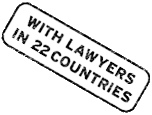A session of the Permanent Peoples Tribunal on alleged violations of international law and international humanitarian law by the Turkish Republic and its officials in their relations with the Kurdish people and their organisations will be held in Paris (France) on 15 and 16 March 2018.
A panel of judges will examine an indictment served upon the Turkish State and some of its officials. Turkey has been criticised by respected human rights organisations, governments, international bodies for violations of the right to freedom of expression, freedom of organisation etc. These violations have been extensively documented and some of them also submitted to the European Court of Human Rights. The indictment will therefor focus on two specific questions which have been less examined:
- It is alleged that in the framework of the armed conflict that opposes the Turkish State to Kurdish insurgents, war crimes have been committed by the Turkish forces. These crimes allegedly targeted deliberately civilians with the purpose of terrorising the civilian population. This type of crimes has, according to many sources, increased dramatically in intensity in the period of 2015 -2017 after the Turkish state ended the peace talks with the representatives of the Kurdish movement and with the Kurdish Workers Party (PKK) in particular. The first main part of the session will concentrate on the aforesaid period and examine the events that occurred in the main Kurdish cities such as Diyarbakir, Cizre, Sirnak during this period. Several sources have reported the use of aircrafts, tanks and artillery by the Turkish army in civilian neighbourhoods of these cities causing massive destruction and loss of lives.
- It has also been alleged that Turkish agents have been involved in targeted crimes against opponents, in particular representatives of the Kurdish movement, Kurdish media etc. Such acts have occurred both in Turkey and abroad. One of the latest examples is the assassination in Paris on January 9, 2013. In Turkey such targeted killings by “unknown perpetrators” have occurred very often in the 1990’s. The second main part of the session will examine whether these crimes can be considered as “state crimes” for which the Turkish State is directly or indirectly responsible.
The proposal to hold this session was made by 4 organizations, the International Association of Democratic Lawyers (IADL), the European Association of Lawyers for Democracy and World Human Rights (ELDH), Mafdad, an organization based in Germany of Kurdish and German Lawyers, and the Kurdish Institute of Brussels. The Permanent People’s Tribunal (PPT) (http://permanentpeoplestribunal.org) accepted that proposal and will appoint a panel of judges.
The organisation of this session is in line with the tradition of Tribunals of Opinion previously organised by different (groups of) organisations to submit situations of violations of fundamental rights to panels of distinguished and prestigious Judges, both with legal and moral authority, to seek an authoritative opinion on the alleged violations. Tribunals of opinion are organised in situation where no official international judicial body has jurisdiction over such violations or where such bodies for some reason are not competent in the specific case, where the national judicial bodies do not offer (sufficient) guarantees of independence and/or impartiality and where impunity is for all these reasons, and of course if the allegations of violations are found to be proven, a real risk.
Such a situation occurs in the case of the allegations of war crimes, crimes against humanity and massive human rights violations committed by the Turkish republic in its relations with the Kurdish people living on Turkish territory.
The Tribunal will announce its decision approximately 2 months after the session during a meeting held in the European Parliament in Brussels. Members of the European Parliament will be invited to that conference to reflect on the political initiatives that flow from the findings of the Court, in particular on measures to fight impunity.

